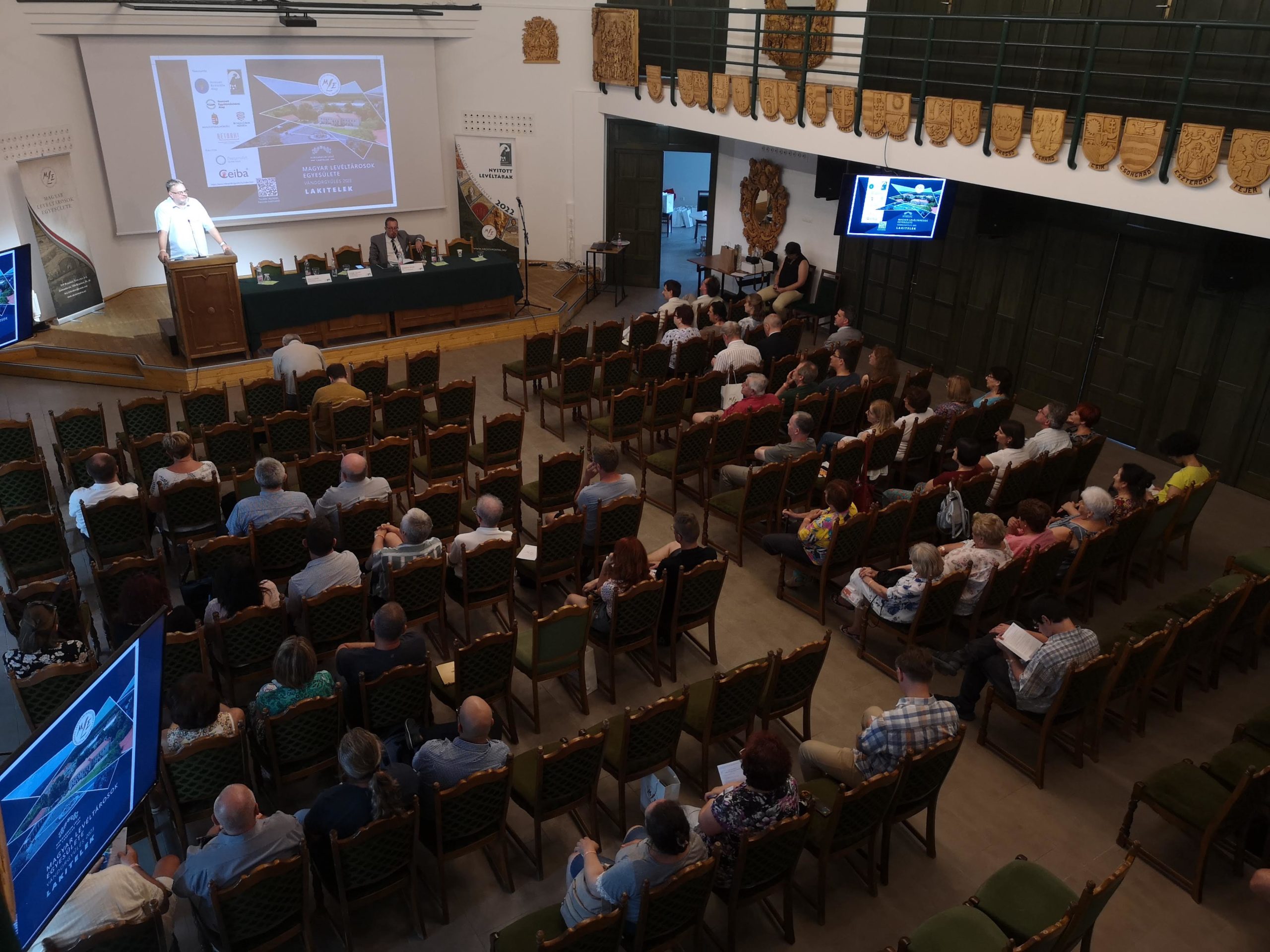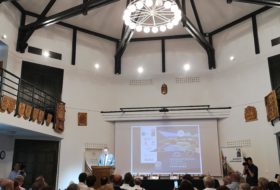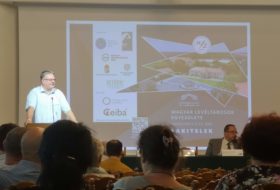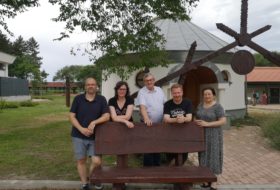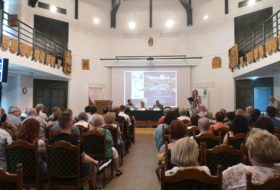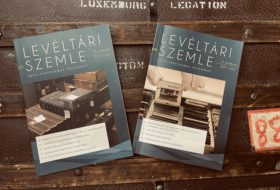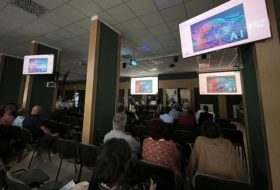The main focus of the Otto von Habsburg Foundation’s work is the processing of the heritage of our namesake. To achieve this objective, we must fulfil our task in close cooperation with national and international public collections, employing the most advanced methodology and to the highest professional standards. An important forum for this cooperation is the travelling conference organised by the Association of Hungarian Archivists in Lakitelek on 24-26 July 2023. Five members of our Foundation, Szilveszter Dékány, Eszter Gaálné Barcs, Piroska Kocsis, Zoltán Ólmosi and Gergely István Szűts, participated in the event.
The annual congress has been a flagship event of the archivist profession since the Association’s re-establishment in 1986; and is one of the prestigious highlights of the Open Archives national programme. Held for the 35th time this year, the travelling meeting was attended by nearly 200 participants, including Hungarian archivists from abroad and leaders of other archivist associations in Europe.
In Lakitelek, the central topics addressed the theme of the archives and statehood; and the Hungarian archival system, initiated 300 years ago. We celebrate this year the 1723 Act of King Charles III, which, at the request of the orders, stipulated that the public records of the country should be deposited in the country’s archives (Archivum Regni). The law establishing the County Archives also dates from the same year.
The event was opened by István Kenyeres, president of the Association of Hungarian Archivists, Sándor Lezsák, vice-president of the National Assembly, chairman of the board of trustees of the Lakitelek Folk High School Foundation, and Máté Vincze, deputy state secretary of the Ministry of Culture and Innovation. Traditionally, professional awards are presented before the plenary session: this time, the outstanding performance of colleagues was recognised with the Dóka Klára Award, founded by the Association, and the Osváth Lajos Award, established for the preservation of the work and memory of Lajos Osváth by his family in 2021.
mlev (2023) program
The second day’s morning included sessions on international, source publication, information technology, conservation, economics, and the history of education and science. Cultural and sports activities followed in the afternoon. We also visited the recently built warehouses and research rooms of the Research Institute for the History of Regime Change (RETÖRKI) and the impressive central building of the National Institute of Culture. Furthermore, the football cup competition of the Association of Hungarian Archivists attracted great interest.
The final day featured presentations to mark the 150th anniversary of the unification of Pest and Buda.
In addition to the official programmes, our colleagues had valuable discussions for our collection with national and international archival community representatives. During the meetings in the corridors, many recalled our January event, “Start to the Year in the Collection“, where we presented our work on processing the heritage of Otto von Habsburg to the professional audience.
